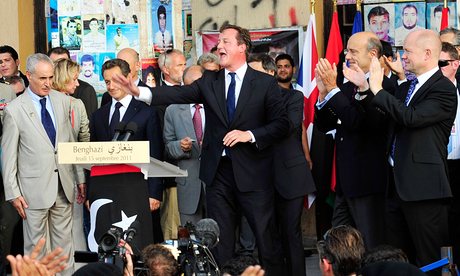Going to war is too easy, far too easy. That is the one clear message from the Commons report on David Cameron’s 2011 war on Libya. It presents that venture as an ill-conceived vanity project, to dust the ingenu prime minister with some “Arab spring” glory. In reality it brought untold misery to a country to which Cameron promised peace and democracy.
The immediate purpose of the war was to save “hundreds of thousands” in Benghazi from imminent massacre, after their uprising against Libya’s leader, Muammar Gaddafi. The certainty of this massacre was dubious. So too was the legality of Britain’s (and France’s) aggression. The military and intelligence communities could not see the point. Nor could Barack Obama. Mission creep was inevitable, and the outcome was certain to destabilise not just Libya but its neighbours. It was none of Britain’s business.
This is not hindsight. Plenty of people said it at the time – clearly not loudly enough. As the foreign affairs committee says, Cameron’s defence of the intervention was drenched in mendacity: that it was strictly humanitarian, that it was just a no-fly zone, that it was not taking sides in a civil war, that it was not aimed at regime change. As for his promise to cheering crowds in Benghazi, that “we will stand with you as you rebuild your country and your democracy”, that was a patent lie. Already he could not even visit Libya’s capital, Tripoli, as it was plunging into factional fighting and chaos.

